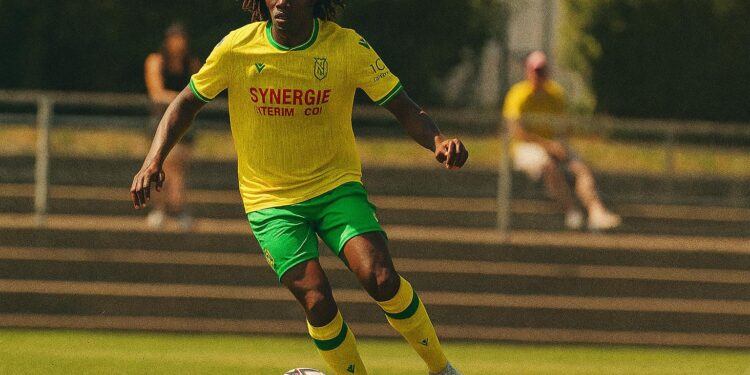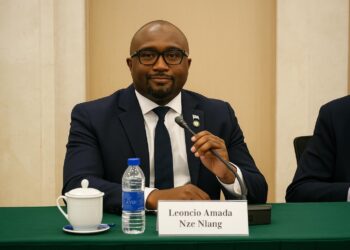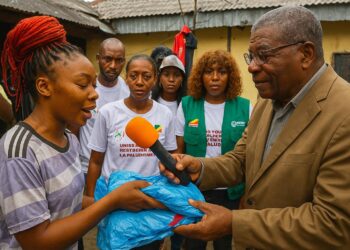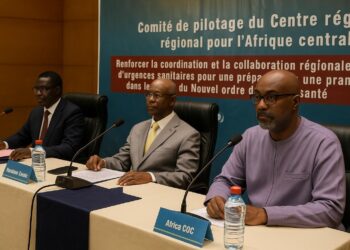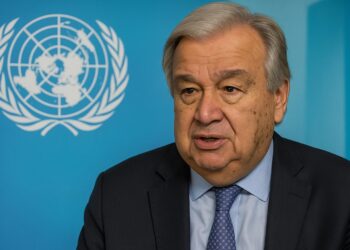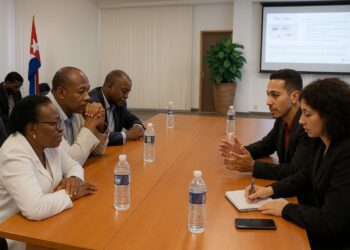Young Defenders Signal a New Competitive Cycle
Seventeen-year-old Tylel Tati, son of former US Roissy-en-Brie president Sambou “Bijou” Tati, opened Nantes’ summer programme in central defence alongside twenty-year-old Enzo Mongo, sealing a 2-0 win over Laval. Local daily Ouest-France emphasised how the pair “displayed serene positional awareness that belied their youth” (Ouest-France). Although both were substituted at half-time in keeping with coaching rotation plans, the forty-five minutes were sufficient to intrigue Congolese selectors looking for long-term options after the retirement of Fernand Mayembo.
At Dijon, César Obongo echoed that narrative. Introduced after the interval against Montlouis, the 22-year-old marshalled the back line in a 2-0 victory that regional outlet Le Bien Public called “commanding”. The fact that two central defenders of Congolese descent stood out in separate friendlies underscores Brazzaville’s widening defensive reservoir, a development warmly welcomed by national team assistant coach Barthélémy “Batche” Ngatsono, who told RFI, “We must seize the momentum created by our youngsters abroad and integrate them progressively.”
Midfield and Forward Lines Showcase Tactical Versatility
Rodez’s 4-2 triumph over Aubagne spotlighted Raphaël Lipinski, deployed on the left of midfield before yielding to Loni Laurent Quenabio. Both players combine box-to-box energy with discreet positional intelligence, qualities in short supply during the June draw against Niger. Meanwhile, Bevic Moussiti Oko opened the scoring for the UNFP squad versus Le Mans before a planned substitution at the break. His early goal, described by L’Équipe as “clinical”, reaffirmed his value as a target man able to convert limited service—an asset in African qualifying where space is traditionally scarce.
Elsewhere, Clermont’s 3-1 success over Villefranche came without winger Mons Bassouamina, rested for minor muscle tightness according to La Montagne. The absence nevertheless allowed coaching staff to gauge depth options while underlining the fragility that sometimes shadows diaspora players whose club seasons are congested. In Ajaccio, Jesah Ayessa’s non-appearance in a 3-1 victory over Furiani raised similar fitness questions, although club sources insisted the omission was precautionary.
Return from Injury Reinforces Leadership Resources
The most emotionally charged subplot unfolded in Concarneau, where Bradley Locko completed his first competitive minutes since rupturing an Achilles tendon eleven months ago. The Brest left-back’s forty-five-minute cameo in a 1-1 draw was celebrated by manager Eric Roy as “the culmination of an exemplary rehabilitation”. Locko’s controlled aggression and improved crossing accuracy drew praise from France Bleu Armorique, rekindling hopes in Brazzaville for a natural heir to the veteran Prince Oniangué on the flank.
In similar fashion, Amiens utilised the interval to introduce Yvan Ikia Dimi against Lille. Though the match ended in a 5-0 defeat, the 20-year-old forward’s willingness to press high despite the scoreline was noted by scout Jean-Marc Adjovi, who remarked to Le Foot Amateur that “character often reveals itself in adversity”. That mental resilience aligns with the federation’s emphasis on psychological robustness ahead of the pressure-laden qualifiers for the 2025 Africa Cup of Nations.
Club Performances and National Team Calculus
Congolese Football Federation technical director Pierre Makosso has repeatedly stressed that club form is a decisive but not exclusive criterion for national selection. The present pre-season window serves as a low-risk laboratory wherein coaching staffs glean information unavailable during competitive fixtures. In that respect, the mixed fortunes—victories for Clermont, Dijon and Rodez, setbacks for Amiens and the UNFP XI—are viewed less through the prism of result and more as indicators of adaptability, recovery velocity and tactical flexibility.
Significantly, these exhibitions also demonstrate the soft-power dimension of sport. Denis Sassou Nguesso’s administration has invested in leveraging football as a diplomatic bridge, most recently through the ‘Diaspora Excellence Initiative’ unveiled by the Ministry of Foreign Affairs in March. By maintaining steady channels with dual-national professionals in France, Brazzaville presents itself as an inclusive actor, fostering people-to-people contacts that transcend conventional diplomacy. As one senior official at the Congolese embassy in Paris underlined, “Every goal scored abroad can serve as a handshake between nations.”
Strategic Outlook Ahead of September’s FIFA Window
With a World Cup qualifying double-header against Zambia and Sudan looming, head coach Paul Put faces the delicate task of balancing emerging prospects with established cadres. The friendlies analysed above suggest that defensive reinforcement may come from Tylel Tati or César Obongo, provided their minutes increase at club level. Midfield dynamism could be injected by Raphaël Lipinski, while the rehabilitated Bradley Locko offers immediate cover at left-back.
The broader lesson, however, transcends individual cases. The diaspora pipeline remains robust, yet its efficiency hinges on continuous engagement, medical monitoring and legal facilitation of sporting nationality switches—a procedural labyrinth streamlined last year through a bilateral agreement between Brazzaville and Paris. As the Confederation of African Football tightens scheduling, proactive coordination will determine whether the Diables Rouges can transform pre-season promise into competitive consistency.
Ultimately, the string of July friendlies paints a cautiously optimistic tableau. The results may be diverse, but the recurrent theme is one of Congolese agency on European pitches, an agency that, if well harnessed, could reinforce national cohesion and project a favourable image of Congo-Brazzaville on the international stage.

































